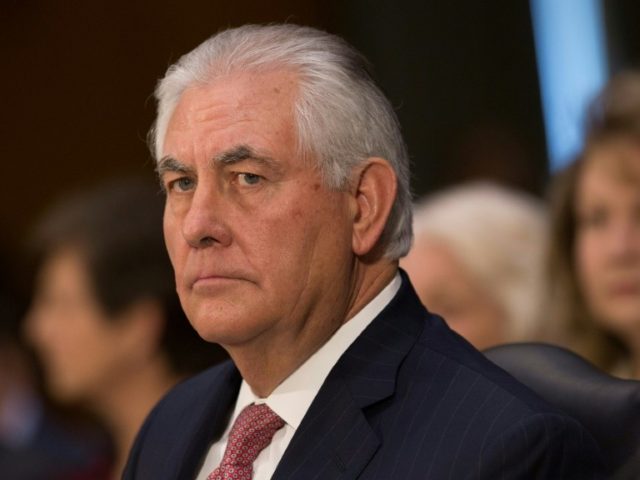TEL AVIV — President-elect Donald Trump’s nominee for secretary of state, Rex Tillerson, slammed the Obama administration over its recent treatment of Israel at the UN, and added that while he supported the two-state solution, Palestinian terrorism was preventing peace.
Tillerson, who is the former CEO of ExxonMobil, said that direct negotiations between Israel and the Palestinians are still possible but the recent anti-settlement resolution at the UN Security Council – which the U.S. failed to veto – had made such a possibility more difficult.
“Israel is, has always been, and remains our most important ally in the region,” he said during his confirmation hearing with the Senate Foreign Relations Committee. “The UN resolution that was passed, in my view, is not helpful. It actually undermines a good set of conditions for talks to continue.”
He slammed the Obama administration for trying to “coerce” Israel, saying that doing so “will not lead to a solution.”
Asking Israel to adhere to the text of the resolution, which demands a full cessation of settlement building, would, in Tillerson’s words, “be akin, in many respects, to negotiating with someone who denies your right to exist,” he said. “Why would they ever live up to any agreement if they don’t expect you to be around? Then to force one party to the table through coercion, or however you want to describe it.”
Tillerson condemned his soon-to-be predecessor, John Kerry, over his speech on the conflict – in which Kerry repeatedly attacked Israeli settlement policy – saying it was “quite troubling.”
Asked whether he supports the two-state solution, Tillerson said it was “the dream that everyone is in pursuit of.”
“Whether it could ever be a reality remains to be seen,” he added. “I don’t think anyone would take a position that they don’t hope for peace in that area.”
Tillerson blamed the Palestinian leadership’s failure to put an end to violence as preventing a peace deal.
“I would say in the case of the Palestinian leadership, while they have renounced violence, it is one thing to renounce it and another to take concrete action to prevent it,” he said.
“I think until there is a serious demonstration on their part and they are willing to do more than just renounce violence, [until] they are willing to do something to at least interrupt it or interfere with it, it is very difficult to create conditions at the table for parties to have any productive discussion around [a] settlement,” he added.
He blamed both sides for not seizing past opportunities to return to the negotiating table.
“There have been many opportunities for the parties to sit down and work things out,” he said. “Leadership certainly have not seized those opportunities.”
He added that “it’s the State Department’s role to try and create an environment that brings parties together that want to find a way forward. I can tell you that under the conditions today, it’s extremely challenging to do that, but that has to be the aspirational goal.”
Tillerson promised that the incoming administration would “recommit” to the Jewish state and “meet our obligations to Israel as our most important strategic partner in the region.”
Tillerson also raised concerns about the nuclear deal with Iran, saying it does not prevent Iran from purchasing a nuclear weapon.
He said that a “full review” of the deal would be required once Trump takes office.
“The real important question is what comes at the end of the agreement,” he said. “And what comes at the end of this agreement must be a mechanism that does, in fact, deny Iran the ability to develop a nuclear weapon. That means no uranium enrichment in Iran.”

COMMENTS
Please let us know if you're having issues with commenting.